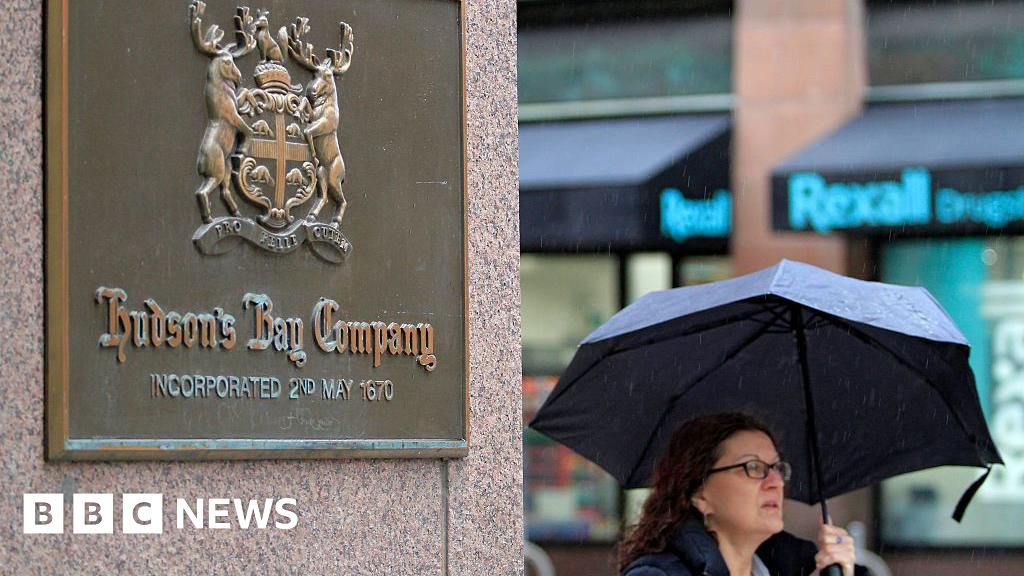Effective Ways to Keep Costs Down While Hosting Your Local Event

Key Takeaways

- Understand Event Costs: Identifying and categorizing potential expenses, such as venue rental and equipment, is crucial for effective budgeting.
- Utilize Affordable Venues: Choosing community spaces or scheduling events during off-peak times can significantly lower venue costs.
- Forge Collaborative Partnerships: Partnering with local businesses and sponsors can provide essential support and reduce overall event expenses while strengthening community ties.
- Employ Cost-Effective Marketing Strategies: Utilize low-cost promotional channels like social media and local community advertising to increase visibility without overspending.
- Leverage Volunteer Support: Engaging volunteers not only reduces staffing costs but also fosters community involvement and enhances overall event productivity.
- Share Resources: Collaborating with local organizations to share equipment and supplies can lead to substantial cost savings while ensuring resource availability.
Hosting a local event can be an exciting venture, but it often comes with a hefty price tag. Whether you’re organizing a community festival, a charity fundraiser, or a neighborhood gathering, finding ways to keep costs down is essential. You want to create an unforgettable experience without breaking the bank.
Fortunately, there are plenty of strategies to help you save money while still delivering a fantastic event. From leveraging local resources to tapping into community partnerships, you can minimize expenses without sacrificing quality. Let’s explore some practical tips that will allow you to host a successful event while keeping your budget intact.
Understanding Event Costs

Understanding the various costs associated with hosting a local event plays a crucial role in effective budgeting. It’s essential to identify all potential expenses to maintain financial control and ensure successful project management.
Types of Costs Involved
- Venue Costs: Venue rental fees often represent a significant portion of your budget. Explore local parks or community centers that can provide cheaper options.
- Equipment Rental: Equipment like audio-visual setups, tables, and chairs can add up. Look for partnerships with local businesses that offer equipment rentals at discounted rates.
- Marketing Expenses: Promotional costs for social media campaigns, flyers, and banners should be factored into your overall plan. Use cost-effective digital marketing strategies to minimize these expenses.
- Supplies and Materials: Supplies like decorations, catering items, or event swag can quickly inflate costs. Buying in bulk or seeking local sponsors can significantly reduce these expenses.
- Staffing Costs: Paying staff or hiring volunteers affects your budget. Consider leveraging community volunteers who may support the event as a part of employee training and development initiatives.
Importance of Budgeting
Budgeting sits at the heart of effective event management. Establishing clear financial parameters enables you to track expenses, identify potential overspending, and adjust your strategy accordingly.
- Enhances Financial Planning: A well-structured budget helps you allocate funds intelligently across different categories, ensuring critical areas receive adequate resources while minimizing risk to your cash flow.
- Improves Decision-Making: When you understand your costs, it streamlines the decision-making process. You can prioritize essential aspects, ensuring the event aligns with your business goals and community expectations.
- Drives Collaboration: Budgeting can foster collaboration with vendors and partners to negotiate fair deals. Clear financial guidelines allow for effective discussions, ensuring all stakeholders work towards mutual benefits.
- Ensures Operational Efficiency: Setting a budget requires evaluating business processes that enhance efficiency. By identifying where you can cut costs, you maintain quality control while achieving desired outcomes.
- Supports Business Development: A successful local event can lead to increased brand visibility and customer acquisition, contributing to long-term business growth. Proper budgeting ensures your event lays a foundation for future opportunities.
Venue Selection

Selecting the right venue plays a crucial role in managing costs associated with hosting a local event. By focusing on affordable options, you can maintain financial stability while delivering an exceptional experience.
Choosing Affordable Locations
Choosing venues during off-peak days or hours lowers rental fees. Schedule your event on weekdays or non-holidays to take advantage of discounts offered by venues. Research unique and non-traditional spaces that can provide an aesthetic appeal without the high price tags. Consider art galleries or historical buildings; these options often come with built-in activities that enhance guest experience.
Utilizing Community Spaces
Utilizing community spaces can significantly reduce your venue costs. Community centers, libraries, schools, and places of worship often offer budget-friendly options for gatherings. These spaces, while sometimes modest, can accommodate various event sizes and needs. They provide an excellent opportunity for small businesses to tap into local resources and foster community relationships, which can lead to fruitful collaborations and business partnerships.
Collaborative Partnerships

Collaborative partnerships significantly reduce costs while hosting a local event. Utilizing resources and support from local businesses and sponsors strengthens community ties and enhances your event’s success.
Working with Local Businesses
Engaging local businesses fosters collaboration and boosts your event’s profile. Partner with small businesses to provide services or products at a discount or for promotional exchange. For example, a local bakery might supply catering in return for advertising its brand at your event. This strategy not only minimizes costs but also supports fellow businesses in your area, creating a sense of community. Leverage this collaboration to enhance your marketing strategy by featuring partners in promotional materials, which can help improve customer acquisition and retention.
Sponsorship Opportunities
Seek sponsorships from companies that align with your event goals. Approach local brands that can benefit from exposure to your audience. In exchange for financial support or in-kind donations, offer them visibility through signage, social media mentions, or branded merchandise. This partnership not only eases your budgeting challenges but also enhances the overall experience for attendees. Use sponsorship opportunities as a tool for financial planning, ensuring you meet business goals while keeping your event’s costs down.
Marketing Strategies

Cost-effective marketing strategies play a vital role in successfully hosting a local event. These strategies ensure you reach your audience without overspending.
Cost-Effective Promotion Techniques
Utilizing low-cost marketing techniques enhances your event’s visibility. Create engaging content showcasing your event’s unique selling points. Reach out to local newspapers and community bulletins for free advertising opportunities. Leverage partnerships with local businesses; they may promote your event through their networks as part of the collaboration, increasing outreach and engagement.
Leveraging Social Media
Maximize social media platforms to promote your event effectively. Focus on Facebook, Instagram, YouTube, and TikTok to target potential attendees, as these tools often come at little or no cost. Schedule posts when your audience is most active for greater engagement. Consider using local hashtags to reach a broader audience interested in community events. Encourage user-generated content by asking attendees to share their experiences, further bolstering engagement and promoting attendance.
Resource Management

Resource management is crucial for hosting a local event on a budget. Implementing effective strategies can significantly reduce costs while enhancing overall productivity.
Volunteer Involvement
Engaging volunteers can reduce staffing costs while fostering a sense of community. Recruiting local volunteers allows you to enlist individuals passionate about the event, providing invaluable support for various tasks, from setup to customer service. Allocating specific roles enhances team management and ensures coverage across all areas. Provide training sessions to equip volunteers with the necessary skills, improving their productivity and effectiveness. Consider creating a volunteer incentive program, such as recognition or small rewards, to encourage participation and commitment.
Sharing Equipment and Supplies
Sharing equipment and supplies can create substantial savings for your event. Collaborating with local businesses or community organizations can offer you access to essential resources without the expense of purchasing or renting. Reach out to nearby organizations for cross-promotion; they may share tables, chairs, or audiovisual equipment in exchange for exposure at your event. Utilizing technology solutions, such as inventory management software, helps track shared resources efficiently, ensuring all items are accounted for and in good condition. Establishing clear communication with partners about the terms of sharing can prevent misunderstandings and streamline logistics.
Conclusion

Hosting a local event doesn’t have to break the bank. By implementing smart strategies you can create an engaging experience while keeping expenses in check. Focus on building relationships within your community to access resources and support that can significantly reduce costs.
Utilize affordable venues and collaborate with local businesses for mutual benefits. Embrace cost-effective marketing techniques to maximize your reach without overspending.
With careful planning and creativity you can successfully manage your budget and deliver an unforgettable event that resonates with your audience.
Frequently Asked Questions

What are some financial challenges of hosting a local event?
Hosting a local event often involves various expenses, such as venue rentals, marketing, and staffing costs. Understanding these financial components and budgeting effectively is essential to avoid overspending and ensure a memorable experience.
How can I reduce costs when organizing an event?
To cut costs, leverage local resources by partnering with businesses and utilizing community spaces. Scheduling events during off-peak times and choosing unique venues can also provide budget-friendly options while maintaining quality.
Why is venue selection important for event budgeting?
The venue significantly impacts overall costs. Choosing affordable locations and non-traditional spaces, like community centers and art galleries, can lower rental fees while offering an appealing atmosphere for your event.
How can community partnerships help with event costs?
Engaging local businesses for sponsorships or services can reduce expenses. These partnerships can provide promotional opportunities in exchange for support, enhancing your event’s profile while fostering community ties.
What low-cost marketing strategies can I use for my event?
Utilize social media platforms, create engaging content, and reach out to local newspapers for free advertising. Scheduling posts and using local hashtags can broaden your reach, while encouraging user-generated content can enhance engagement.
How can I manage resources effectively while hosting an event?
Engaging volunteers can minimize staffing costs while fostering community involvement. Additionally, sharing equipment and supplies with local organizations, and employing technology for inventory management can help streamline operations and save money.
Image Via Envato
This article, "Effective Ways to Keep Costs Down While Hosting Your Local Event" was first published on Small Business Trends
What's Your Reaction?
 Like
0
Like
0
 Dislike
0
Dislike
0
 Love
0
Love
0
 Funny
0
Funny
0
 Angry
0
Angry
0
 Sad
0
Sad
0
 Wow
0
Wow
0






























































































